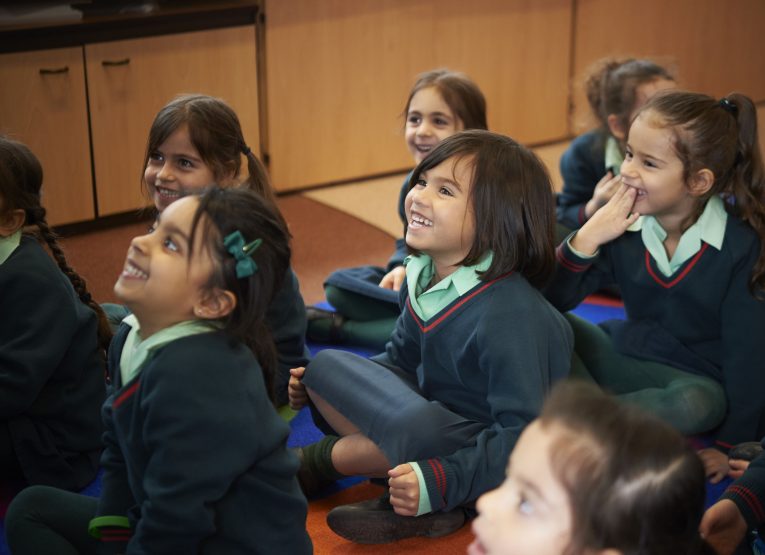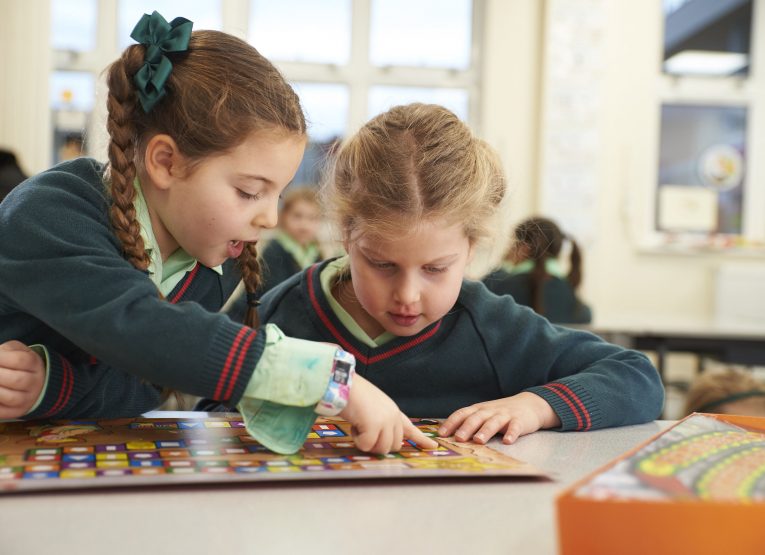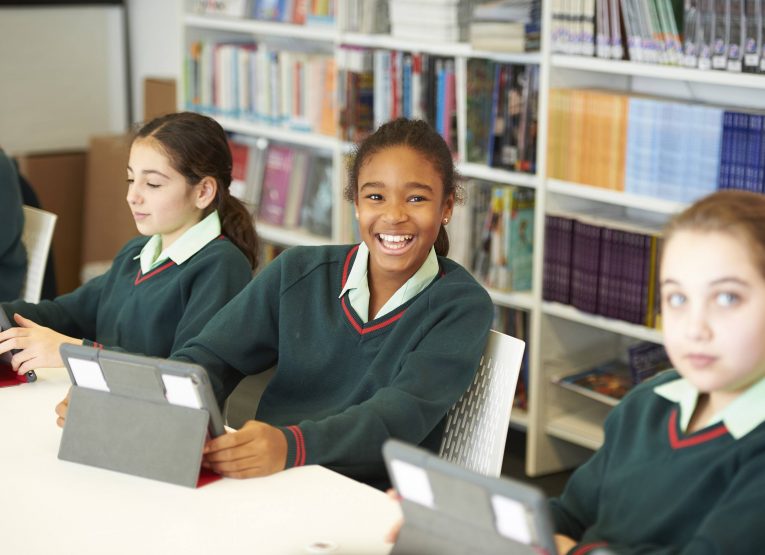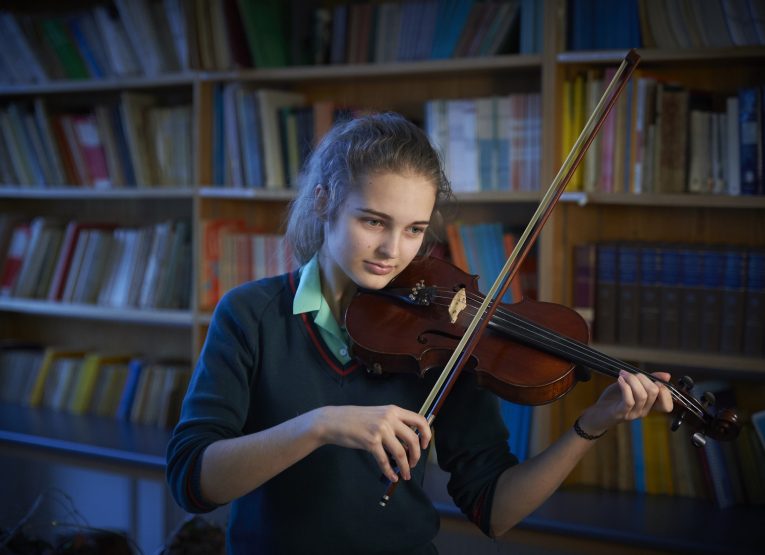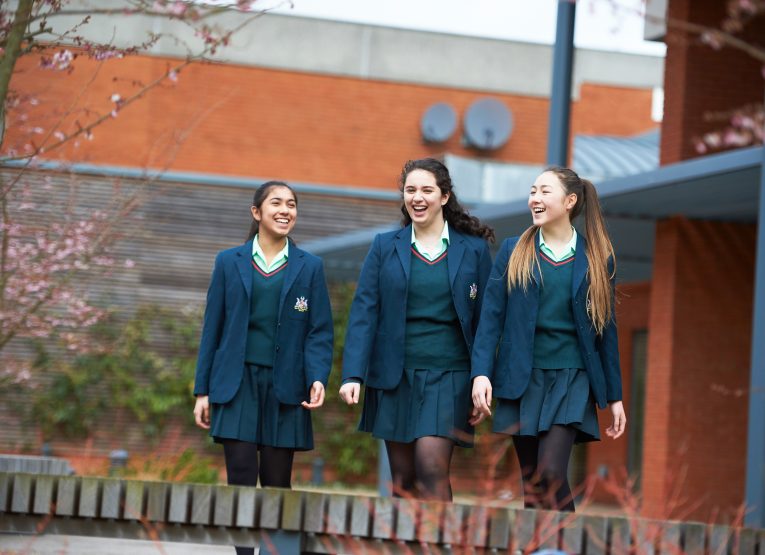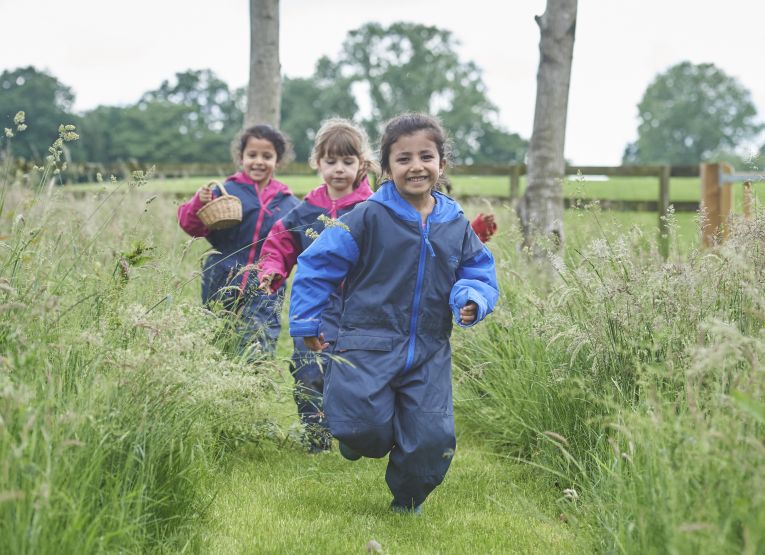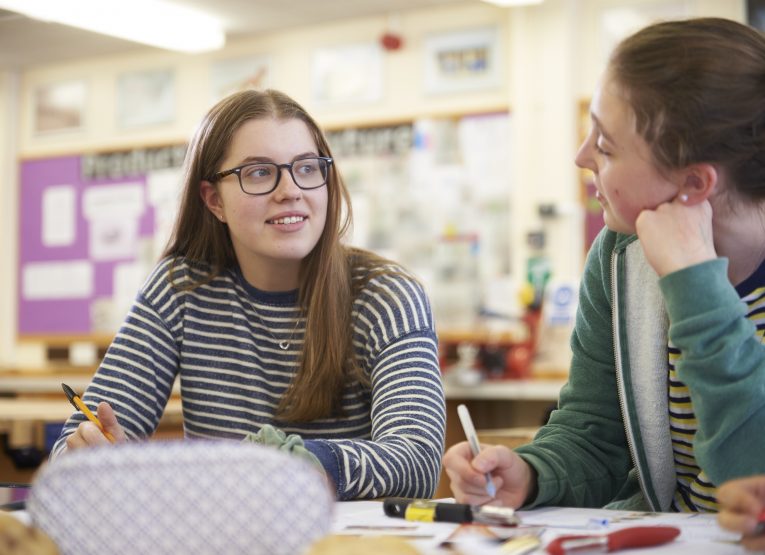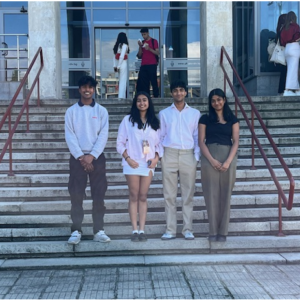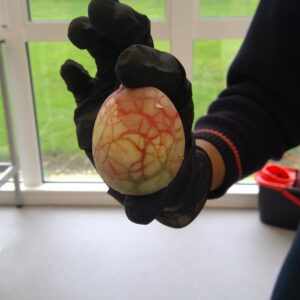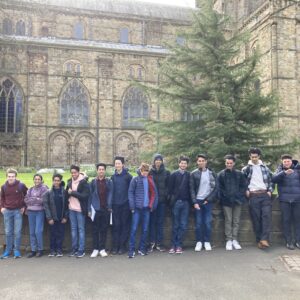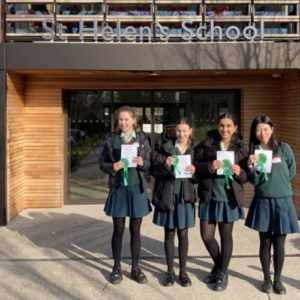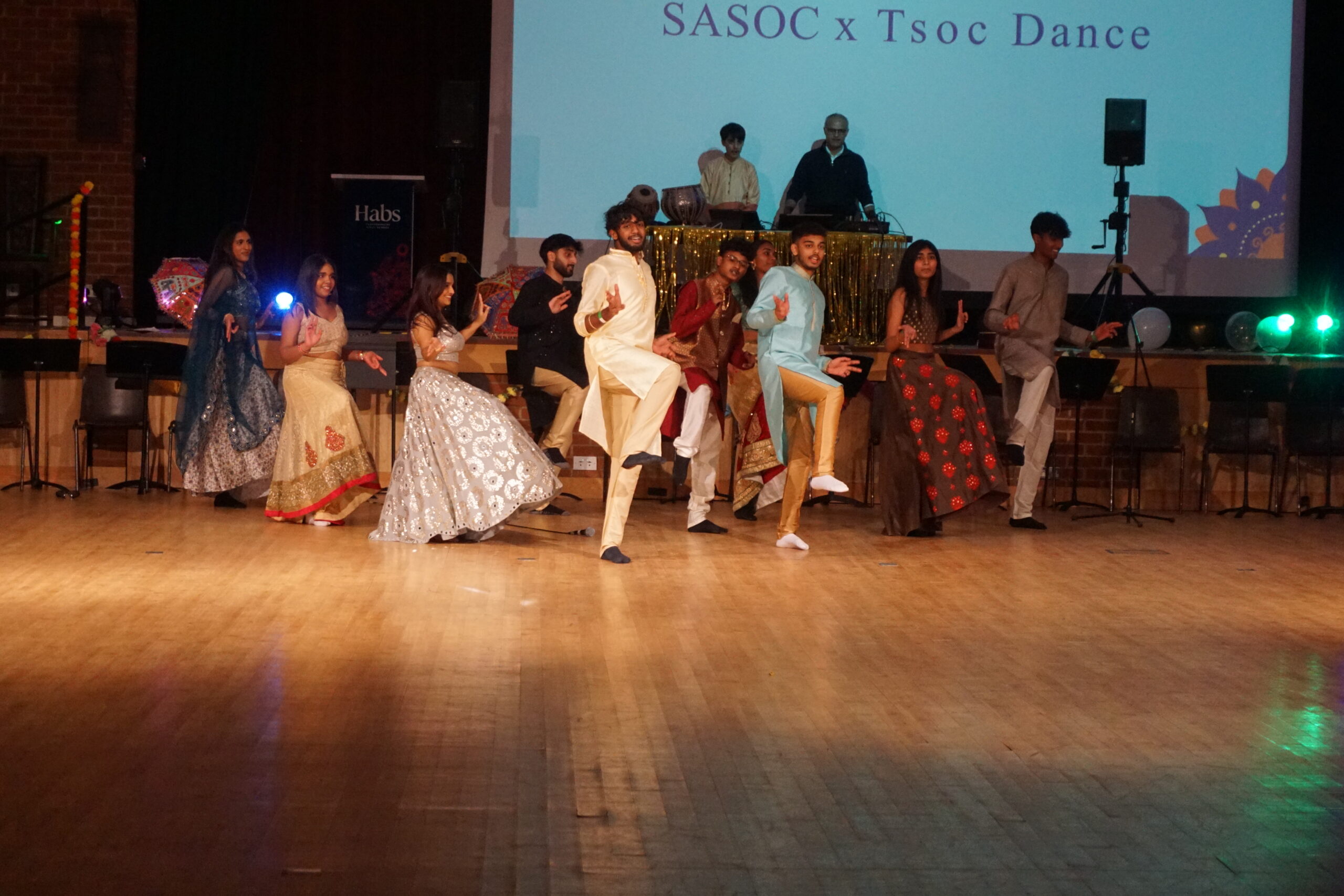FAQs
Here you can find answers to some of our most frequently asked questions about the admissions process at Habs Girls.
4+ / 7+ Admissions
WHAT ARE WE LOOKING FOR AT 4+?
Children who are displaying many of the characteristics of effective learning, which underpin the Early Years Foundation Stage Profile, who we think will be teachable and responsive to the way we want the girls to learn at Habs.
HOW SHOULD PARENTS PREPARE THEIR DAUGHTER FOR THE 4+ GROUP ACTIVITY SESSION?
Tell her that she is going to have fun playing with other children as she does at her current nursery/setting.
SHOULD WE HAVE HER TUTORED?
Absolutely not! The best way to support your daughter is to allow her to play, explore and use her imagination like every other 3 or 4 year old. Reading to your child every day is also fundamental to her development.
WHAT IS THE HOMEWORK ROUTINE IN THE JUNIOR SCHOOL?
The pupils may, where appropriate, be given opportunities to take examples of activities they have completed during the day home to show their parents and demonstrate, for example, letters they have been drawing or a collage they have made, but there is no prescribed homework coverage in Rainbow or Year 1 as we believe children of this age should be using the time at home to explore and experiment, independently building on the learning experiences offered at school. Reading daily is encouraged throughout the Junior School and beyond.
Homework routines are established for pupils in Year 3 upwards with a view to preparing them for life after the Junior School and the opportunity to independently apply what they have learnt during the day.
HOW SHOULD I PREPARE MY DAUGHTER FOR THE 7+ PROCESS?
Everything she is covering in her Year 2 setting should be enough for her to show her potential in our assessment. We discourage tutoring.
WHEN DO THE CHILDREN START SWIMMING LESSONS?
The girls start swimming in the Summer Term of Rainbow
IS THERE WRAP-AROUND CARE?
We offer Breakfast Club from 7.30am for girls in Year 1 upwards* and there are optional after school clubs and after school care* until 5.30pm.
*Rainbow pupils can attend Breakfast Club and Late Room from the Autumn half term provided they are settled at school.
WHEN CAN MY DAUGHTER TRAVEL ON THE SCHOOL COACH?
From Year 3. The coach service is shared with the Boys’ School. You can find out more on our Coach Service page.
IS THERE A SIBLING POLICY?
No. Each child is considered for a place individually at all levels of entry.
WHAT MAKES HABS GIRLS DIFFERENT TO OTHER PRIMARY/PREP SCHOOLS?
- Our child centred approach
- The broad curriculum, including Forest School, with many specialist teachers
- We are not a hot house or an exam factory: we believe in an holistic approach to education
- The focus is on learning habits such as problem solving, risk-taking, learning from failure, perseverance, resilience, asking questions, independence, taking responsibility for own learning, creativity, reflection, collaboration, communication
- We are not constrained by a narrow curriculum or an undue focus on tests and the 11+ Entrance Exam
- We have all the benefits of a single sex education with the advantage of opportunities for collaborative activities and trips with our neighbours at Habs Boys’ School
- We benefit from shared resources and venues with the Senior school; with role-modelling and support from older students
IS THERE ANY FINANCIAL ASSISTANCE AVAILABLE IN THE JUNIOR SCHOOL?
No, bursaries are only available at the Year 7 (11+) entry point.
11+ Admissions
What are you looking for in a Habs Girl?
We are looking for individuals who have the potential to succeed and thrive in an inspiring and academically challenging environment; well-rounded pupils with a genuine interest in learning, who will make the most of all of the opportunities we offer.
What does the assessment consist of?
All applicants are invited to sit written papers in English and Mathematics. The English exam consists of questions on fiction and non-fiction texts, testing students’ ability to understand, infer and evaluate; there will also be a short directed writing task which will give them an opportunity to demonstrate their ability to write effectively for a specific purpose and audience. The Mathematics paper is designed to test their ability to think mathematically and logically; it covers addition, subtraction, multiplication and division, with application to fractions, decimals, percentages, the metric system of weights and measures, the 12 and 24-hour clock, time problems, and questions involving geometric shapes and bar graphs. The use of calculators is not allowed.
On the basis of the results from the written examination, a number of candidates will be called for interview. Offers of places will be made from amongst those called for interview.
My child is at a state school. Will they be at a disadvantage?
No. We take roughly equal numbers of children from maintained and independent schools. They come with a variety of experience and interest which provides an excellent mix in the school. We are looking to test potential and the ability to think independently; our paper is based around skills taught within the National Curriculum and no tutoring or preparation, other than the work your child is currently doing in school, is required in order to demonstrate this.
What is the religious background of the school?
The school has a Christian tradition but welcomes the richness of different faiths within the community. Every day begins with the whole school meeting in an assembly or House meeting to explore ideas, and to reinforce the school’s values and its sense of community.
All major world religions are represented. Once a week separate Assemblies are held: Christian, Hindu, Jain, Sikh and Buddhist, Humanist, Jewish and Muslim. Everyone is expected to attend with an open mind and a willingness to understand another point of view; differences are celebrated and enjoyed, not merely tolerated.
Does the school offer a Breakfast Club and after school care?
The school day begins with registration at 8.35am, but the Dining Room opens at 7.30am each morning for breakfast, offering a full selection of traditional hot breakfast items and pastries.
Pupils are encouraged to take an active part in one or more of the great many clubs and activities available. Some take place in the lunch hour and others, including drama and sporting activities, are after school. Everything ends in time for the 5.30pm evening coach service.
Do you have a sibling policy?
No. Each candidate is considered for a place individually at all levels of entry and must win their place on merit.
Do you have a sibling policy?
No. Each candidate is considered for a place individually at all levels of entry and must win their place on merit.
I am hoping for financial help with tuition fees. What is the procedure?
Bursary applicants sit the same examination and have interviews in the same way as all other candidates. Bursary application forms are available from the Admissions Registrar in the autumn prior to the examination. Please make sure forms are completed and returned by the specified date. We will be able to tell you, at interview, the level of financial help you are likely to receive, based on the income declaration forms you have returned.
You can find out more on our Bursaries page.
What about Scholarships?
We offer a range of Scholarships. Academic scholarships may be awarded on the basis of outstanding performance in the examinations and interview. There is no separate examination paper.
Additionally, candidates can apply for:
- Music Scholarships
- Art Scholarships
- Creative Writing Scholarships
- Drama Scholarships
- Sports Scholarships
You can find more information, including eligibility criteria, application process and key dates on our Scholarships page.
16+ Admissions
What is Habs looking for at 16+?
We are looking for hardworking students, capable of achieving strong academic results alongside a significant contribution to the extra-curricular life of the school.
How many subjects can I take?
You may choose three or four A Levels with a view to studying them for the full two years. Approximately 25% of our students choose to study four A Levels.
I didn’t apply in time to sit the entrance exam, will you consider a late application?
Late applications will be considered when GCSE results are published in August. We can only consider late applications from those students who meet our entrance criteria. We ask for nine GCSEs including Mathematics and English, with a minimum Grade 7 in the subjects that you wish to study, or in a related subject where the proposed course is in a new subject.
There are certain subjects where we have placed higher grade expectations to enable our students to thrive in those subjects.
- In Maths, Biology, Chemistry and Physics, a Grade 8 is essential, although we would recommend a Grade 9
- In Further Maths, a strong Grade 9 at GCSE is required
The following new subjects require:
- Economics and Computing – a Grade 8 in GCSE Maths is required although a Grade 9 Is recommended
- Philosophy and Politics – a Grade 8 in a related GCSE, such as Religious Studies, English or History, is recommended
You must be able to meet with us as soon as possible after receiving your results and be aware that, at this late stage, we may not have capacity or timetabling flexibility to accommodate your subject choices.
I want to study a subject A Level, but I haven’t studied it at GCSE – does this matter?
Not necessarily. There are a few subjects where the A Level may be a new subject to you. The following subjects may allow students who have not studied GCSE to join their A Level courses:
- Classical Civilisation
- Computing
- Design Engineering
- Geography
- History
- Psychology
- Theatre Studies
- Religious Studies
- PE (Physical Education)
What do I do in my study periods?
You definitely have more freedom in the Sixth Form than you will have had before. You will need to be disciplined with your study periods and develop your independent study skills. Use this time to do homework, research and wider reading. There are fantastic resources within school to make use of, such as the Learning Resources Centre.
Are offers conditional on GCSE results?
Yes, offers will be conditional on your GCSE results, and these will be made clear in your offer letter. Whatever subjects you study at A Level, there will be a big step up from GCSE and we need to be sure that you will be comfortable with the pace and style of teaching. Therefore, it is important that you have a strong foundation at GCSE. We typically need you to have a grade 7/A (8/9/A* in Sciences and Maths), in order to study a subject at A Level. We will consider individual circumstances carefully if you do not achieve the grade that you were hoping for.
Is there any financial assistance when joining the Sixth Form?
Means tested bursaries are available – for further information please click here.
Music Scholarships are also available. For further information please click here. Please note that this is the only scholarship available at 16+ entry.
Is there a sibling policy?
No. Each child is considered for a place individually at all levels of entry.

